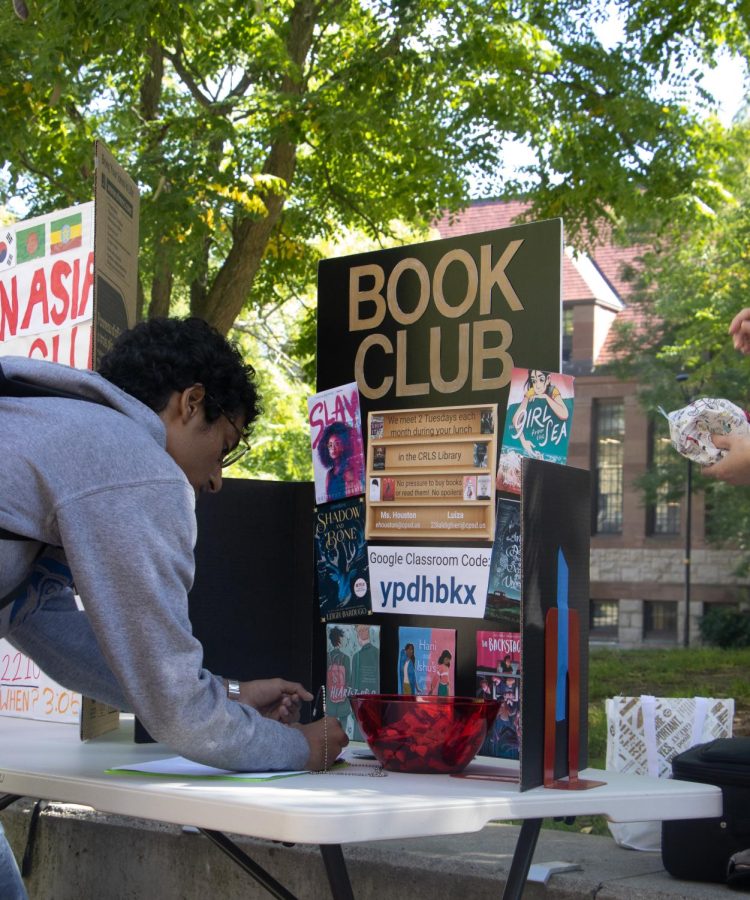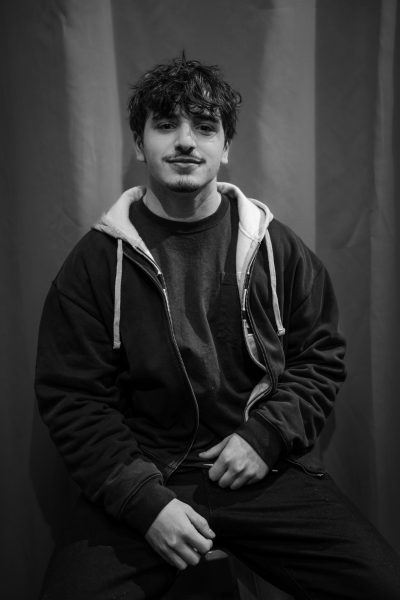Club Week: Effective or Not?
Various clubs recruited new members over a four-day event.
November 9, 2022
The first “normal” year of schooling since 2019 has left many eager to engage in the extracurriculars CRLS has to offer. In the last week of September, CRLS held its second-ever Club Week. Dozens of poster-topped tables popped up during all three lunches to try to recruit new members and expand clubs’ outreach. The student body flaunted its diverse interests, ranging from K-pop to fishing to Rubik’s cubes. Club leaders feel that the week allowed them to effectively promote their organizations, despite any flaws they may see with the new week-long system.
Several new clubs made their debut this year, one of them being Spike Ball Club. Despite its lack of history, founder and leader, Aiden McFerran ’24, reports to the Register Forum that they got, “110 people to sign up, so it was a very successful day.” Here at CRLS, with such a broad range of interests, any club can find its footing, no matter how niche it may be. Clubs that are more intellectually based also attracted hordes of new signees. Sophia Robertson ’24, a co-leader of Debate Club, told the Register Forum that “[they] got a lot of new recruits … saw a lot of new faces, especially freshmen and sophomores.” She continues, “It was really nice to see a lot more underclassmen joining clubs.”
Although all interviewed leaders reported success from Club Week, some thought that it fell short in recruiting new members. Madeline Marinovich ʼ24, leader of Hiking Club, argued to the Register Forum that the timing of Club Week was suboptimal: “lunch is an awkward time [to hold Club Week] because people need to hustle during lunch. I think an alternative solution would be some time after school, or a day off of school for just clubs.” Other leaders felt that only having a single school-wide event to promote clubs made it difficult for those who may have missed Club Week to discover new clubs. Robertson thinks that the week “doesn’t have enough outreach … maybe [a club] doesn’t have as many people at lunches as [they’d] like promoting [their] club.” She suggests that there should be other opportunities to promote clubs “through the Register Forum or other mediums.”
Coming out of a pandemic, some clubs revealed they had seen a significant increase in interest this year compared to last. Tashi Mulug-Labrang ’24 told the Register Forum that COVID “100%” played a role in people’s hesitance to join clubs. Marinovich also attributes last year’s lack of community engagement to COVID-19. She believes that last fall, “people were scared to participate … coming out of quarantine, a lot of people didn’t have energy. This year … people are itching to get out there into the community.”
This piece also appears in our October 2022 print edition.











